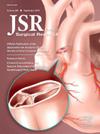A Tale of Two Sides: Exploring Faculty and Resident Perspectives on Feedback by Qualitative Analysis
IF 1.8
3区 医学
Q2 SURGERY
引用次数: 0
Abstract
Introduction
Feedback is an essential yet challenging process to operationalize among surgical faculties and residents. It remains a frequently cited area of dissatisfaction by residents. Furthermore, there is a discrepancy between faculty and resident perceptions of feedback being given and received. With the transition to competency-based education, optimizing feedback practices is of paramount importance. We aimed to explore the surgical faculty and resident perspectives on feedback to better understand the challenges and culture surrounding feedback.
Methods
We conducted semistructured interviews with faculty and focus groups with residents at a single academic institution’s general surgery residency program. Interviews were transcribed, coded by two reviewers independently, and then reconciled by consensus. A thematic analysis approach was used to capture emerging concepts.
Results
A total of 16 faculties and 15 residents from all five postgraduate years participated. Nearly half of participants were women (n = 15, 48.4%), with seven faculty (43.8%) and eight residents (53.3%). Faculties and residents had different perspectives on feedback, and three major themes were identified: (1) faculty frustration, fatigue, and uncertainty; (2) interpersonal dynamics for different levels of training; and (3) structural refinement of the learning environment.
Conclusions
Substantial differences exist between surgical faculty and resident perspectives on the feedback. Further feedback development is warranted, and targeted interventions for residents tailored to training levels may be effective in strengthening feedback experiences and learning opportunities. Aligning faculty and resident mindsets with shared mental models and expectations will meaningfully support resident advancement toward entrustment as competent surgeons.
求助全文
约1分钟内获得全文
求助全文
来源期刊
CiteScore
3.90
自引率
4.50%
发文量
627
审稿时长
138 days
期刊介绍:
The Journal of Surgical Research: Clinical and Laboratory Investigation publishes original articles concerned with clinical and laboratory investigations relevant to surgical practice and teaching. The journal emphasizes reports of clinical investigations or fundamental research bearing directly on surgical management that will be of general interest to a broad range of surgeons and surgical researchers. The articles presented need not have been the products of surgeons or of surgical laboratories.
The Journal of Surgical Research also features review articles and special articles relating to educational, research, or social issues of interest to the academic surgical community.

 求助内容:
求助内容: 应助结果提醒方式:
应助结果提醒方式:


